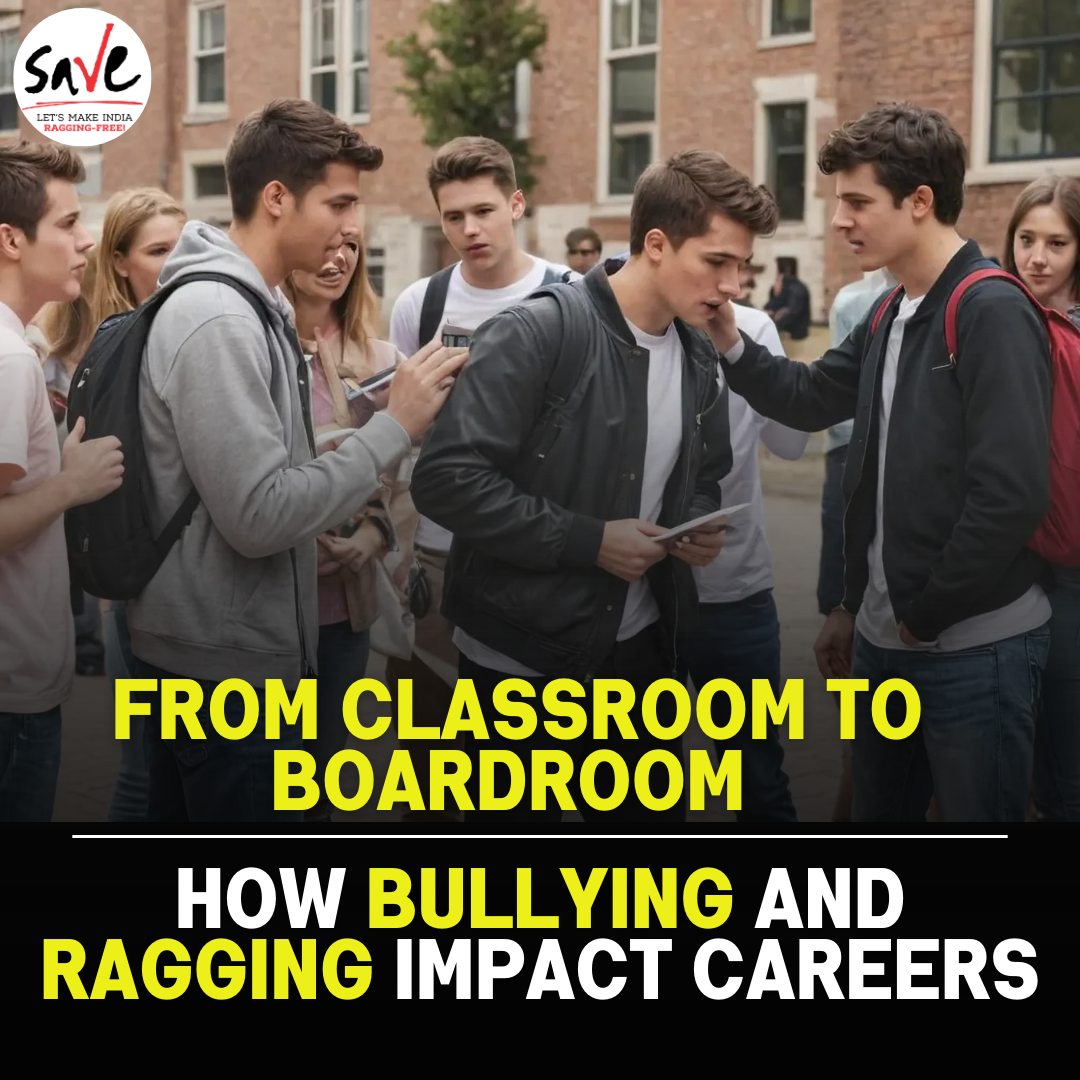Bullying and ragging are not mere rites of passage; they are destructive practices that can have devastating effects on individuals’ careers and lives. These harmful behaviors, prevalent in educational institutions and workplaces alike, undermine confidence, mental health, and the overall potential of victims. Here’s a closer look at how bullying and ragging can derail promising careers.
Psychological Impact
One of the most immediate and profound effects of bullying and ragging is on the victim’s mental health. Victims often experience anxiety, depression, and low self-esteem. These psychological scars can persist long after the bullying has stopped, leading to long-term mental health issues that can hinder academic performance and professional growth. When students or employees are constantly under stress, their ability to concentrate and perform at their best diminishes, leading to poor grades or job performance.
Academic and Professional Setbacks
In educational settings, ragging can cause students to skip classes, drop out, or transfer to other institutions, disrupting their academic journey. The fear and humiliation associated with ragging can lead to a significant decline in academic performance. Students who might have excelled under supportive conditions often find their potential stunted, affecting their career prospects.
In the workplace, bullying can lead to decreased productivity, increased absenteeism, and high employee turnover. Victims may feel compelled to leave their jobs to escape the toxic environment, resulting in career instability and gaps in employment history that can be difficult to explain to future employers.
Loss of Opportunities
Victims of bullying and ragging often miss out on critical opportunities for personal and professional development. In schools and colleges, students may shy away from participating in extracurricular activities, leadership roles, or academic competitions due to fear of being targeted. Similarly, in the workplace, bullied employees might avoid taking on challenging projects, seeking promotions, or networking with colleagues and superiors, which are all crucial for career advancement.
Erosion of Confidence and Ambition
Bullying and ragging erode self-confidence and ambition, which are essential for career success. Victims may begin to doubt their abilities and worth, leading them to set lower career goals or settle for less challenging roles. The constant undermining of their self-esteem can create a sense of helplessness and resignation, preventing them from pursuing their dreams and achieving their full potential.
Negative Impact on Social Skills
Both bullying and ragging negatively impact social skills and relationships. Victims often become withdrawn, isolated, and mistrustful of others. These social difficulties can extend into professional settings, where effective communication and collaboration are vital. Poor social skills can hinder networking opportunities, teamwork, and the ability to build professional relationships, all of which are crucial for career growth.
Long-Term Career Damage
The long-term effects of bullying and ragging can be devastating. Career progression often relies on a combination of skills, experience, and personal attributes such as resilience and confidence. When these attributes are undermined, it can lead to a stagnation or regression in one’s career. The psychological and emotional toll can result in a lack of motivation and engagement, further damaging career prospects.
Conclusion
Bullying and ragging are not just harmful behaviors; they are career-destroying practices that leave lasting scars on individuals. It is crucial for educational institutions, workplaces, and society as a whole to recognize the severe impact of these practices and take decisive action to prevent and address them. By fostering supportive, respectful, and inclusive environments, we can help ensure that every individual has the opportunity to succeed and thrive without the fear of bullying or ragging.
At the Society Against Violence in Education (SAVE), we are committed to eradicating these harmful practices and supporting victims in rebuilding their confidence and careers. Together, we can create safer and more nurturing environments where everyone has the chance to reach their full potential.


